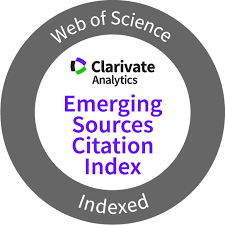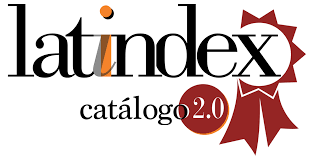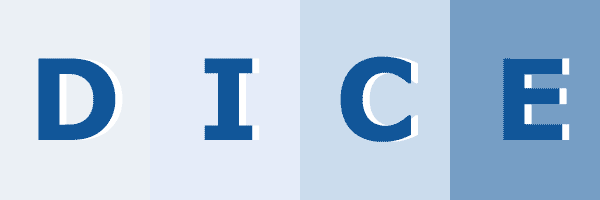Gestión Comunicacional de Crisis: Entre la agenda corporativa y mediática. Estudio de caso Volkswagen España / Crisis Communication Management: Between the corporate and the media agenda. Case study Volkswagen
DOI:
https://doi.org/10.5783/revrrpp.v7i13.429Palabras clave:
Estrategias de respuesta, crisis en comunicación, estudio de caso, responsabilidad moralResumen
En este texto se aborda un análisis comparativo entre el mensaje de los medios de comunicación y los comunicados oficiales en la crisis de Volkswagen. El estudio se centra en el encuadramiento de la estrategia de Bowen & Zheng (2015) aplicadas en la crisis del sector automotriz a través del diseño no experimental descriptivo de enfoque cualitativo en las estrategias de respuesta. Los hallazgos demuestran que la atribución volitiva de las responsabilidades es una respuesta a la problematización emitida por los medios y no por la existencia de un código moral que sustente la toma de decisiones en la gestión de crisis.
Abstract
This paper addresses a comparative analysis between the message of the media and official statements on the crisis of Volkswagen. The study focuses on Bowen & Zheng (2015) framework strategy applied on the auto industry through a descriptive non-experimental design of qualitative approach. The findings show that the volitional attribution of responsibility is a response to the problematization issued by the media and not by the existence of a moral code that informs decision-making in crisis management.
Descargas
Citas
An, S.K. & Gower, K.K. (2009). How do the news media frame crises? A content analysis of crisis news coverage. Public Relations Review, 35(2), 107–112. doi: http://dx.doi.org/10.1016/j.pubrev.2009.01.010
Andrews, A.P., Simon, J., Tian, F. & Zhao, J. The Toyota crisis: an economic, operational and strategic analysis of the massive recall. Management Research Review, 34(10), 1064-1077. doi: http://dx.doi.org/10.1108/01409171111171474
Bowen, S.A. (2008). Frames of terrorism provided by the news media and potential communication responses. En H.D. O’Hair et al. (Eds.), Terrorism: Communication and rhetorical perspectives (pp. 337–358). New Jersey: Hampton.
Bowen, S.A. (2009). Ethical responsibility and guidelines for managing issues of risk and risk communication. En H.D. O’Hair & R.L. Heath (Eds.), Handbook of risk and crisis communication (pp. 343–363). Thousand Oaks: Sage.
Bowen, S.A. & Zheng, Y. (2015). Auto recall crisis, framing, and ethical response: Toyota’s missteps. Public Relations Review, (41), 40-49. doi: http://dx.doi.org/10.1016/j.pubrev.2014.10.017
Schultz, F., Kleinnijenhuis, J., Oegema, D., Utz, S. & Atteveldt, W.V. (2012). Strategic framing in the BP crisis: A semantic network analysis of associative frames. Public Relations Review, 38(1), 97–107. doi: http://dx.doi.org/10.1016/j.pubrev.2011.08.003
Schwarz, A. (2012). How publics use social media to respond to blame games in crisis communication: The Love Parade tragedy in Duisburg 2010. Public Relations Review, 38(3), 430–437. doi: http://dx.doi.org/10.1016/j.pubrev.2012.01.009
Semetko, H. A., & Valkenburg, P. M. (2000). Framing European politics: A content analysis of press and television news. Journal of Communication, 50(2), 93. doi: 10.1111/j.1460-2466.2000.tb02843.x
Thompson, G., Garder, D., Besch, M., Thiruvengadam, A. & Kapanna, H. (2014). In-Use Emission Testing of Light-Duty Diesel Vehicles in the United States (Final Report). West Virginia University: Center for Alternative Fuels, Engines and Emissions.
van der Meer, T.G.L.A. & Verhoeven, P. (2013). Public framing organizational crisis situations: Social media versus news media. Public Relations Review, 39(3), 229–231. doi: http://dx.doi.org/10.1016/j.pubrev.2012.12.001
Zhang, B., Veijalainen, J. & Kotkov, D. (2016). Volkswagen Emission Crisis – Managing Stakeholder Relations on the Web. En Proceedings of the 12th International Conference on Web Information Systems and Technologies (WEBIST 2016), Vol. 1, 176-187. doi: http://dx.doi.org/10.5220/0005892401760187
Descargas
Publicado
Cómo citar
Número
Sección
Licencia
Los autores que publican en esta revista están de acuerdo con los siguientes términos:- Los autores conservan los derechos de autor y garantizan a la revista el derecho de ser la primera publicación del trabajo al igual que licenciado bajo una Creative Commons Attribution License que permite a otros compartir el trabajo con un reconocimiento de la autoría del trabajo y la publicación inicial en esta revista.
- Los autores pueden establecer por separado acuerdos adicionales para la distribución no exclusiva de la versión de la obra publicada en la revista (por ejemplo, situarlo en un repositorio institucional o publicarlo en un libro), con un reconocimiento de su publicación inicial en esta revista.
- Se permite y se anima a los autores a difundir sus trabajos electrónicamente (por ejemplo, en repositorios institucionales o en su propio sitio web) antes y durante el proceso de envío, ya que puede dar lugar a intercambios productivos, así como a una citación más temprana y mayor de los trabajos publicados (Véase The Effect of Open Access) (en inglés).




